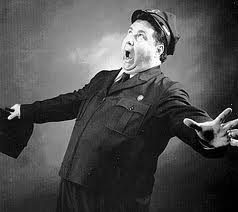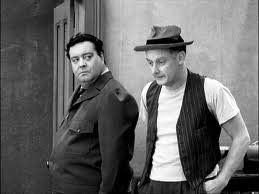By Peter Jeff
The Leadership Mints Guy
Here’s an idea to help you better adapt to new audiences. Reading time: 3:04
You’re beautiful and your sexy hair, stylish clothes and stunning makeup are just as beautiful. After all, you’re an actress with all the glamour that draws fans on stage and screen.

Audrey Meadows and Jackie Gleason
So what’s the chances that you would allow yourself to be professionally photographed while you’re wearing curlers, a torn housecoat and no makeup? Audrey Meadows did that and earned the contested TV role as the wife of Ralph Kramden in the Jackie Gleason’s sitcom The Honeymooners in 1955 .
And in the process, the famous actress of her time modeled a leadership behavior that the most influential leaders follow even today more than a half century later:
Adapt to your audience’s
fears, concerns
and expectations
before you make your presentation,
before you ask for the order or for the job.
Audry Meadows, the former Broadway musical star in Top Banana, had a method to her madness. She wanted the role of playing Jackie Gleason’s wife in the sitcom. But Gleason was reluctant to even consider her. Continue reading


